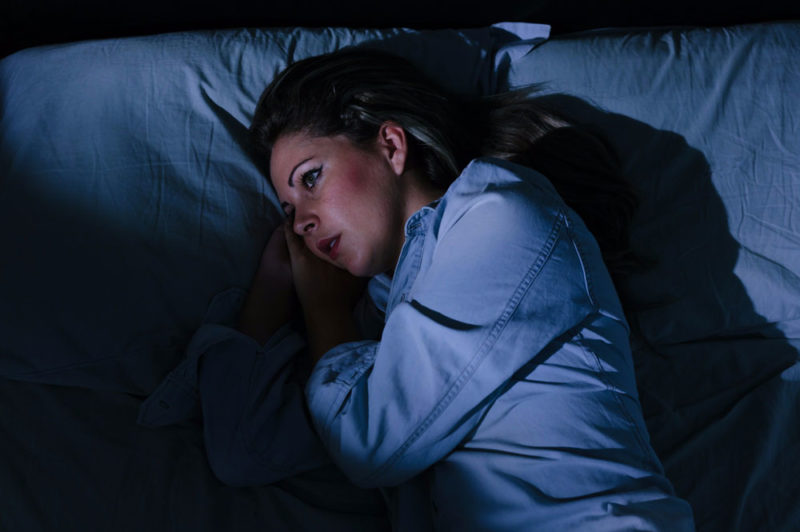Understanding Depression
According to the National Institute of Mental Health, Depression (Major Depressive Disorder or Clinical Depression) is a common but serious mood disorder. It causes severe symptoms that affect how you feel, think, and handle daily activities, such as sleeping, eating, or working. To be diagnosed with depression, the symptoms must be present for at least two weeks.
Intensive Outpatient Program Depression (Outpatient Depression Treatment): Some forms of depression are slightly different, or they may develop under unique circumstances, such as Depression treatment will become necessary where the feelings for depression are persistent and do not go away.

- Persistent depressive disorder (also called dysthymia): is a depressed mood that lasts for at least two years. A person diagnosed with persistent depressive disorder may have episodes of major Depression along with periods of less severe symptoms, but symptoms must last for two years to be considered a persistent depressive disorder.
- Psychotic Depression: occurs when a person has severe depression plus some form of psychosis, such as having disturbing false fixed beliefs (delusions) or hearing or seeing upsetting things that others cannot hear or see (hallucinations). The psychotic symptoms typically have a depressive “theme,” such as delusions of guilt, poverty, or illness.
- Bipolar disorder: is different from Depression, but it is included in this list because someone with bipolar disorder experiences episodes of extremely low moods that meet the criteria for major Depression (called “Bipolar Depression”). But a person with bipolar disorder also experiences extreme high – euphoric or irritable – moods called “mania” or a less severe form called “hypomania.”
- Postpartum Depression: is much more serious than the “baby blues” (relatively mild depressive and anxiety symptoms that typically clear within two weeks after delivery) that many women experience after giving birth. Women with postpartum Depression experience full-blown major Depression during pregnancy or after delivery (postpartum depression). The feelings of extreme sadness, anxiety, and exhaustion that accompany postpartum depression may make it difficult for these new mothers to complete daily care activities for themselves and/or their babies.
- Seasonal affective disorder: is characterized by the onset of Depression during the winter months, when there is less natural sunlight. This Depression generally lifts during spring and summer. Winter Depression, typically accompanied by social withdrawal, increased sleep, and weight gain, predictably returns every year in seasonal affective disorder.
Get Help. Get Better. Get Your Life Back.
Searching for Accredited Dual Diagnosis Mental Health Centers Near You?
Even if therapy failed previously, or are in the middle of a difficult crisis, we stand ready to support you. Our trusted behavioral health specialists will not give up on you. When you feel ready or just want someone to speak to about counseling alternatives to change your life call us. Even if we cannot assist you, we will lead you to wherever you can get support. There is no obligation. Call our hotline today.
FREE 24/7 Dual Diagnosis Mental Health Services HotlineTypes of therapy
Depression Treatment Medications
Outpatient Depression Treatment: Depression is a condition that is treated with antidepressants. They might enhance how your brain employs specific hormones that regulate stress or mood. Before you find an antidepressant that reduces your symptoms and has tolerable side effects, you may need to try a few different ones. Frequently, a drug that has previously helped you or a close relative will be taken into account.
It’s crucial to give medication a chance before drawing any conclusions about its efficacy because antidepressants often take 2 to 4 weeks to start working and frequently, symptoms like poor sleep, increased appetite, and difficulty concentrating improve before mood improves. Do not discontinue taking antidepressants once you start them without consulting a doctor.
Antidepressants can sometimes help people feel better, but when they stop taking them on their own, their depression can return. The doctor will work with you to gradually and safely reduce your dose when you and your doctor determine it is time to stop taking the medicine, which is typically after a course of 6 to 12 months. A sudden stop can result in withdrawal symptoms.

Under certain circumstances, taking antidepressants might lead to an increase in suicidal thoughts or actions among children, teenagers, and young people under the age of 25, particularly in the first few weeks or when the dose is adjusted. In addition, patients of all ages taking antidepressants should be thoroughly monitored, particularly in the initial few weeks of treatment, according to this FDA caution.
Talk to your doctor about any potential elevated health hazards to you, your unborn child, or the nursing infant if you are thinking about taking an antidepressant while you are pregnant, planning to become pregnant, or nursing.
Depression Treatment Psychotherapies
Outpatient Depression Treatment: Several types of psychotherapy (also called “talk therapy” or, in a less specific form, counseling) can help people with Depression. Examples of evidence-based approaches specific to the treatment of depression include cognitive-behavioral therapy (CBT), interpersonal therapy (IPT), and problem-solving therapy.
Depression Treatment Brain Stimulation Therapies
Outpatient Depression Treatment: Electroconvulsive treatment (ECT) may be a possibility to investigate if drugs do not lessen the symptoms of depression. Using the most recent research:
- ECT can provide relief for people with severe depression who have not been able to feel better with other treatments.
- Electroconvulsive therapy can be an effective treatment for Depression. In some severe cases where a rapid response is necessary or medications cannot be used safely, ECT can even be a first-line intervention.
- Once strictly an inpatient procedure, today ECT is often performed on an outpatient basis. The treatment consists of a series of sessions, typically three times a week, for two to four weeks.
- ECT is not painful, and you cannot feel the electrical impulses. Before ECT begins, a patient is put under brief anesthesia and given a muscle relaxant. Within one hour after the treatment session, which takes only a few minutes, the patient is awake and alert.
- ECT may cause some side effects, including confusion, disorientation, and memory loss. Usually, these side effects are short-term, but sometimes memory problems can linger, especially for the months around the time of the treatment course. Advances in ECT devices and methods have made modern ECT safe and effective for the vast majority of patients. Talk to your doctor and make sure you understand the potential benefits and risks of the treatment before giving your informed consent to undergoing ECT.
Repetitive transcranial magnetic stimulation (rTMS) and vagus nerve stimulation are two additional more recently developed types of brain stimulation therapies used to treat depression that is resistant to medication (VNS). Other forms of brain stimulation therapies are being researched.
Make an appointment to see your doctor or other healthcare practitioners as soon as you suspect you might need therapy for depression. This can be your general practitioner or a medical professional with expertise in identifying and treating mental health disorders.

End the Emotional Pain. Get Your Life Back.
Feeling Depressed, Anxious or Struggling with Mental Health Illness? Get Safe Comfortable Mental Health Dual Diagnosis High-Quality Therapy From Counselors That Care. Begin Your Recovery Now.
Hotline (855) 940-6125Depression Recovery
One of the most prevalent mental illnesses in the United States is depression. According to recent studies, a mix of genetic, biochemical, environmental, and psychological variables contribute to depression. Although it can occur at any age, depression frequently starts in adulthood. It’s now known that depression can affect kids and teenagers, albeit it can occasionally manifest as impatience rather than a depressed mood. High levels of anxiety in children often lead to chronic mood and anxiety disorders in adulthood.
Depression can co-occur with other major medical conditions such as diabetes, cancer, heart disease, and Parkinson’s disease, especially in middle-aged or older persons. When depression is prevalent, these symptoms frequently get worse. Sometimes, the adverse effects of drugs used to treat these medical conditions might worsen depression. The most effective treatment plan can be determined with the assistance of a doctor skilled in handling these challenging disorders.
Furthermore, when someone is depressed, instant “uppers” like alcohol are readily available. However, alcohol is a depressant with a stimulant mask, making it a big risk factor. Treatment for alcohol abuse and depression is the first step in dealing with or preventing alcohol misuse.
First-class Facilities & Amenities
World-class High-Quality Mental Health Services & Behavioral Health Substance Abuse Treatment
Rehab Centers TourRenowned Mental Health Centers. Serene Private Facilities. Inpatient Rehab Programs Vary.
Mental Health Helpline (855) 940-6125Proven recovery success experience, backed by a Team w/ History of:
15+
Years of Unified Experience
100s
5-Star Reviews Across Our Centers
10K
Recovery Successes
- Comprehensive Dual-Diagnosis Treatment
- Complimentary Family & Alumni Programs
- Coaching, Recovery & Development Events
- Comfortable Onsite Medical Detox Center
What is Outpatient Therapy for Depression? Outpatient Depression Program, Or Outpatient Depression Rehab
Depression and other mental health issues are treated in an intensive outpatient program for depression. An intensive outpatient program for depression offers you a high level of care when depression symptoms are severe and you believe you might require professional help for your mental health. IOPs are intended for people who require a greater degree of care than only once a week or every other week sessions with a therapist. In contrast to a partial hospitalization program, IOPs do not meet daily (PHP).
The intensive outpatient program for depression includes both group therapy and one-on-one therapy sessions with therapists. It meets three days a week. intensive outpatient program depression has the benefit of not needing overnight stays and allowing for greater flexibility in terms of work and household responsibilities. You have the freedom to continue living your life as usual during the IOP program.

Intensive Outpatient Therapy Depression – Outpatient Programs for Depression (Depression Outpatient Treatment)
Did you know that studies have shown that an intensive outpatient program depression or intensive outpatient treatment for depression is equally as successful in treating depression as inpatient programs? When you are not a danger to yourself or others, an intensive outpatient program depression is quite successful at treating depression.
To treat the symptoms of depression, intensive outpatient program depression programs employ a range of therapeutic modalities, including Cognitive Behavioral Therapy (CBT) and Dialectical Behavioral Therapy (DBT). One study that used DBT for depression in an IOP discovered that participants’ depression scores dramatically dropped over the course of treatment and that patients’ levels of hope increased as a result of therapy.
World-class, Accredited, 5-Star Reviewed, Effective Mental Health Dual Diagnosis Programs. Complete Integrated Inpatient Rehab with Free Post Discharge Therapy Planning.
CALL (855) 940-6125End the Emotional Pain Rollercoaster. Gain Stability & Happiness Through Recovery Treatment. Start Mental Health Counseling Today. Get Free No-obligation Guidance by Behaviroal Health Specialists Who Understand Mental Health Recovery.
Who Would Benefit From Intensive Outpatient Therapy or Outpatient Depression Treatment?
An intensive outpatient program depression provides group therapy as an alternative to one-on-one therapy sessions. Your depression symptoms can be successfully treated with a combination of group therapy and one-on-one counseling.
Benefits of group therapy in an intensive outpatient program depression include:
· Enhancing your communication skills
· Providing opportunities for a cathartic experience
· Giving you honest feedback
· Helping you see you are not alone
· Teaching you new coping skills
· Benefiting others by sharing your experience
· Enriching your own perspective through discussions
Depression signs and symptoms
If you have been experiencing some of the following signs and symptoms most of the day, nearly every day, for at least two weeks, you may be suffering from Depression:
- Persistent sad, anxious, or “empty” mood
- Feelings of hopelessness, or pessimism
- Irritability
- Feelings of guilt, worthlessness, or helplessness
- Loss of interest or pleasure in hobbies and activities
- Decreased energy or fatigue
- Moving or talking more slowly
- Feeling restless or having trouble sitting still
- Difficulty concentrating, remembering, or making decisions
- Difficulty sleeping, early-morning awakening, or oversleeping
- Appetite and/or weight changes
- Thoughts of death or suicide, or suicide attempts
- Aches or pains, headaches, cramps, or digestive problems without a clear physical cause and/or that do not ease even with treatment
Not everyone who is depressed experiences every symptom. Some people experience only a few symptoms while others may experience many. Several persistent symptoms in addition to low mood are required for a diagnosis of Major Depression, but people with only a few – but distressing – symptoms may benefit from treatment of their “subsyndromal” Depression. The severity and frequency of symptoms and how long they last will vary depending on the individual and his or her particular illness. Symptoms may also vary depending on the stage of the illness.
Experience Transformative Recovery at the We Level Up Treatment Center.
See our authentic success stories. Get inspired. Get the help you deserve.



Start a New Life
Begin with a free call to a behavioral health treatment advisor. Learn more about our dual-diagnosis programs. The We Level Up treatment center network delivers recovery programs that vary by each treatment facility. Call to learn more.
- Personalized Care
- Caring Accountable Staff
- World-class Amenities
- Licensed & Accredited
- Renowned w/ 5-Star Reviews
We’ll Call You
Intensive Outpatient Depression Program Near Me or Outpatient Treatment for Depression
Looking for outpatient depression treatment near me? Depression Treatment is often required for Major Depressive Disorder or Clinical Depression. A condition that should not be taken lightly. We Level Up Treatment Center can provide you, or someone you love, the tools to treat Depression with professional and safe care. Looking for outpatient depression treatment centers near me? We do not offer outpatient care, only inpatient. Feel free to call us to speak with one of our counselors. We can inform you about this condition by giving you relevant information. Our specialists know what you are going through. Please know that each call is private and confidential.